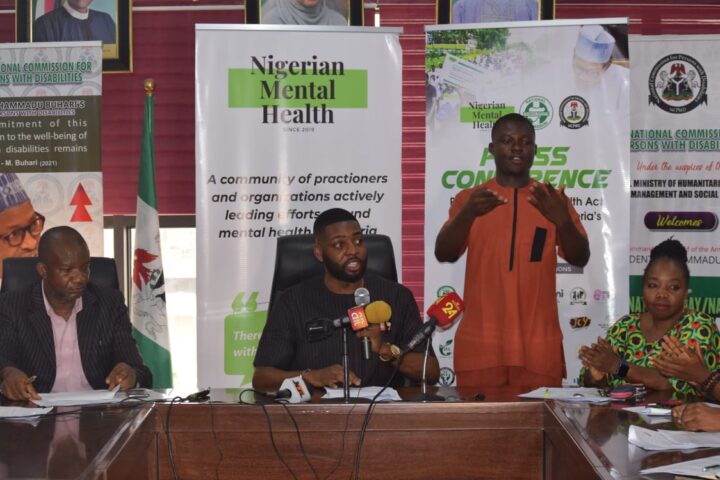The Nigerian Copyright Commission (NCC) says the recently signed copyright act will enable more visually impaired Nigerians to access published materials.
John Asein, director-general of the commission, spoke at a briefing organised by the Nigeria Association of the Blind (NAB) on Thursday.
President Muhammadu Buhari signed the Copyright Bill of 2022 which repeals the Copyright Act of 2004, into law on March 17.
The law, among others, provides for effective administration, regulation, enforcement, and protection of copyright in the digital environment.
Advertisement
Commenting on this, Asein said the act is not only blind-friendly but “sufficiently” balanced in so many other areas to meet the demands of rights owners and the needs of users.
Citing data from the World Health Organisation (WHO), the NCC DG said the percentage of published materials available in accessible formats in Nigeria is low.
“Limited availability of accessible books for the blind, visually impaired persons and persons who are otherwise print disabled is a real barrier to their education and participation in other sociocultural life, thereby, impacting on their capacity to lead independent and productive lives in an inclusive world,” he said.
Advertisement
Asein called on publishers and relevant stakeholders to ensure compliance with the act by embracing inclusive publishing.
“As we had advocated in the past, and in line with government policy of inclusiveness and non-discrimination, it should also be mandatory that all government-funded book production should be made accessible to the blind as well as the sighted,” he said.
“In this regard, the Nigerian Copyright Commission will consult with other relevant agencies and stakeholders to develop a National Policy on Inclusive Publishing either as a standalone policy or as part of any other policy.”
Asein added that measures are in place to ensure the exceptions given to the blind in the act are not abused.
Advertisement
“As we know, the Marrakesh Treaty has a clear humanitarian and social development dimension and its main goal is to create a set of mandatory limitations and exceptions for the benefit of the blind, visually impaired, and otherwise print disabled persons,” he said.
“It is not oblivious of the need to ensure safeguards against abuses in the chain of supply. These safeguards, which are incorporated in our Copyright Act include clear rules on the role of authorised entities and the beneficiaries.
“The provisions do not in any way prohibit the commercial distribution of accessible book formats by publishers along with regular market copies, as these would ordinarily ease the challenge faced by people with visual impairment.”
Advertisement
Add a comment






